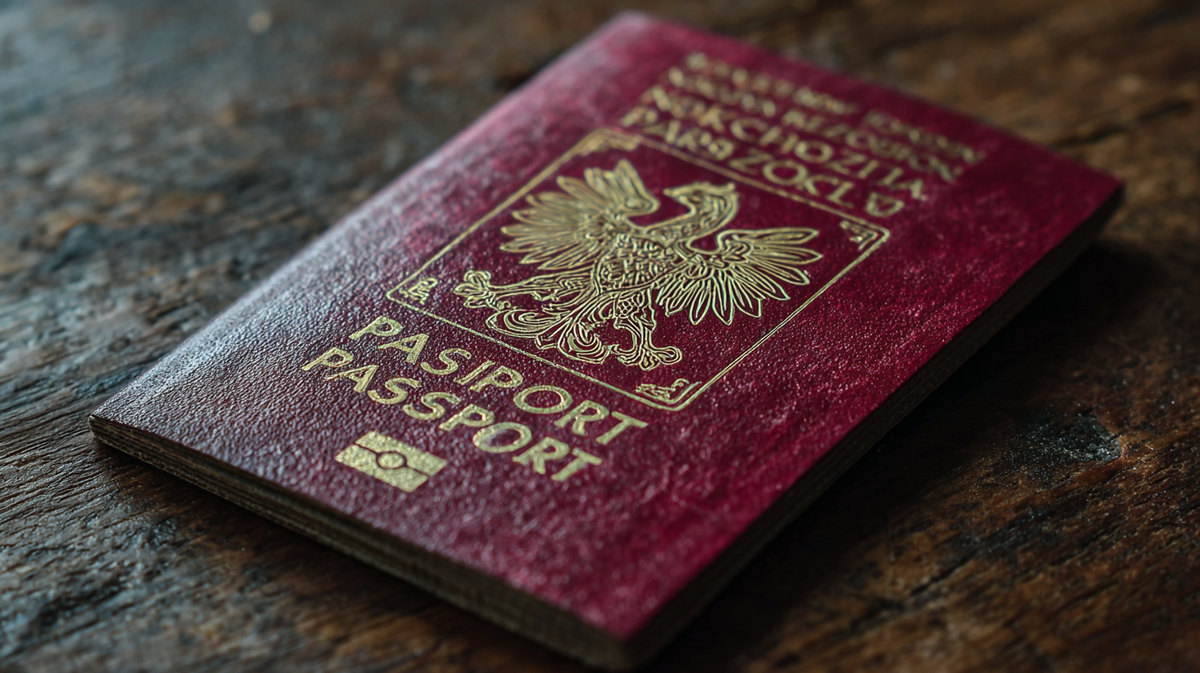In an increasingly globalized world, the allure of holding multiple citizenships has never been stronger. For many individuals with Polish ancestry, the opportunity to obtain a Polish passport by descent offers not only a connection to their heritage but also the practical benefits of European Union citizenship. This process, while potentially complex, is a rewarding journey that can open doors to new opportunities across Europe. This article provides a comprehensive guide to understanding and applying for a Polish passport by descent, ensuring you are well-equipped to navigate the legal and bureaucratic pathways involved.
Understanding Polish Citizenship by Descent
The concept of obtaining polish citizenship by descent is rooted in the principle of “jus sanguinis,” or right of blood. This means that citizenship is not determined by the place of birth but by having a parent or grandparent who was a Polish citizen. This principle allows descendants of Polish nationals to reclaim their citizenship, provided they can prove their lineage and meet certain legal requirements.
To begin the process, it is essential to gather documentation that establishes your Polish ancestry. This typically includes birth certificates, marriage certificates, and any other official documents that can trace your lineage back to a Polish citizen. It is important to note that the Polish government requires these documents to be in Polish or translated by a certified translator.
Once you have gathered the necessary documentation, the next step is to submit an application to the Polish consulate or embassy in your country. This application will be reviewed by Polish authorities, who will verify your eligibility for citizenship by descent. It is crucial to ensure that all documents are complete and accurate to avoid delays in the process.
Step-by-Step Guide to Applying for a Polish Passport by Descent
Applying for a Polish passport by descent involves several key steps, each requiring careful attention to detail. Here is a step-by-step guide to help you through the process:
- Research and Prepare: Begin by researching the specific requirements for Polish citizenship by descent. This includes understanding the necessary documentation and any legal stipulations that may apply to your situation.
- Gather Documentation: Collect all relevant documents that prove your Polish ancestry. This includes birth and marriage certificates, as well as any other records that establish your familial connection to Poland.
- Translate Documents: Ensure that all documents are translated into Polish by a certified translator. This is a critical step, as the Polish authorities will only accept documents in Polish.
- Submit Application: Once your documents are ready, submit your application to the nearest Polish consulate or embassy. Be prepared to provide additional information or documentation if requested.
- Await Confirmation: After submission, your application will be reviewed by Polish authorities. This process can take several months, so patience is essential.
- Receive Citizenship Confirmation: If your application is successful, you will receive confirmation of your Polish citizenship. This will allow you to apply for a Polish passport.
- Apply for a Polish Passport: With your citizenship confirmed, you can now apply for a Polish passport. This involves submitting a separate application and providing additional documentation, such as a passport photo and proof of identity.
Najczęstsze wyzwania w procesie uzyskiwania obywatelstwa
Wiele osób napotyka trudności związane z brakiem pełnej dokumentacji potwierdzającej polskie pochodzenie. Archiwa, w których przechowywane są metryki urodzenia czy akty małżeństwa, nie zawsze są łatwo dostępne, a część dokumentów mogła ulec zniszczeniu w wyniku wydarzeń historycznych. W takich przypadkach konieczna jest cierpliwość oraz kontakt z polskimi urzędami lub instytucjami archiwalnymi, które mogą pomóc w odtworzeniu potrzebnych danych.
Wsparcie profesjonalnych kancelarii
Choć proces aplikacyjny można przeprowadzić samodzielnie, wiele osób decyduje się na współpracę z kancelariami prawnymi specjalizującymi się w prawie imigracyjnym. Profesjonalne wsparcie pozwala uniknąć błędów formalnych, przyspiesza procedurę i daje pewność, że dokumentacja zostanie przygotowana zgodnie z wymaganiami urzędów. Dzięki temu droga do polskiego paszportu staje się mniej stresująca i bardziej przewidywalna.
Dziedzictwo i poczucie tożsamości
Polski paszport to nie tylko dokument podróży, ale także symbol więzi z przeszłością i kulturą przodków. Dla wielu osób odzyskanie obywatelstwa jest sposobem na przywrócenie rodzinnych tradycji i zbudowanie mostu między pokoleniami. To również okazja, aby aktywnie uczestniczyć w życiu współczesnej Polski – czy to poprzez naukę języka, podróże, czy nawiązywanie nowych relacji zawodowych i osobistych.
Benefits and Considerations of Holding a Polish Passport
Holding a Polish passport offers numerous benefits, particularly for those interested in living, working, or traveling within the European Union. As a Polish citizen, you gain the right to reside and work in any EU member state, access to social services, and the ability to travel freely across the Schengen Area without a visa.
However, it is important to consider the responsibilities that come with dual citizenship. This includes understanding tax obligations, military service requirements, and any other legal duties that may apply to Polish citizens. It is advisable to consult with legal experts or immigration specialists to fully understand these implications.
In conclusion, obtaining a Polish passport by descent is a meaningful way to connect with your heritage while enjoying the practical benefits of EU citizenship. By following the steps outlined in this guide and ensuring all documentation is accurate and complete, you can successfully navigate the process and unlock new opportunities for yourself and your family.

